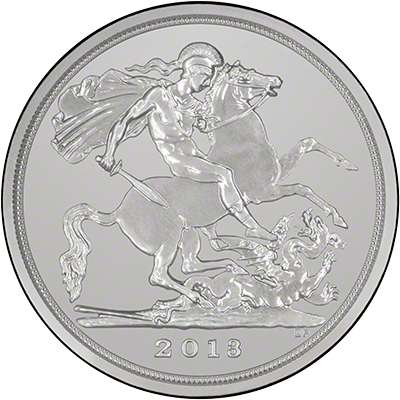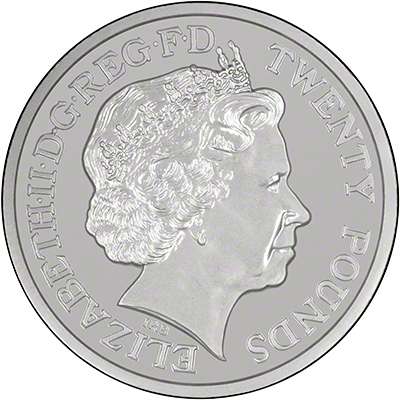Coins have long been a fascinating aspect of human history, serving as a means of trade, symbols of power, and collectors’ items. In the United Kingdom, legal tender holds a significant role in the settlement of debts. The concept of legal tender and its application to commemorative coins, such as the 20 pound coin, has sparked debates and controversies. In this article, we will delve into the definition of legal tender, explore the status of the 20 pound coin as legal tender, and understand the implications for retailers and individuals.
What Does Legal Tender Mean?
Legal tender, in the context of settling debts, has a precise and technical definition. It ensures that a debtor cannot be sued for non-payment if they pay the owed amount in legal tender. However, it is essential to note that legal tender does not restrict ordinary transactions or dictate the specific form of payment. Both parties involved in a transaction have the freedom to agree upon any form of payment they deem suitable, whether it be legal tender or otherwise.
The Royal Mint, the authority responsible for the production of coins in the United Kingdom, designates certain coins as legal tender. This includes coins of various denominations, including the 20 pound coin. However, it is crucial to understand the limitations and nuances associated with legal tender status.
The Status of the 20 Pound Coin as Legal Tender
The 20 pound coin has the status of legal tender throughout the United Kingdom. It allows individuals to settle debts without the risk of facing legal consequences for non-payment. However, it is important to consider the specific circumstances and limitations surrounding the acceptance of legal tender.
According to The Royal Mint, there are no specified limits on the number of 20 pound coins that retailers can accept in a single transaction. However, it is worth noting that shops and retailers are not legally obligated to accept large denomination coins, even if they hold legal tender status. The retailers have the freedom to accept or reject certain forms of payment, as long as their decision does not violate any discrimination laws.
Tesco’s Stance on £20 Coins
The acceptance of 20 pound coins as a form of payment by retailers has been a subject of controversy. One notable incident involved a Tesco customer, Brett Chamberlain, who attempted to pay for £87.49 worth of petrol using five 20 pound coins. Initially, the Tesco staff refused to accept the coins, citing consultation with their legal team.
In response to the incident, Tesco placed signs on their petrol pumps stating that they were no longer accepting commemorative coins, including £20 coins. However, it appears that Tesco later reversed its decision and removed the signs, ultimately accepting the 20 pound coins as payment.
Legal Tender Laws and Retailer Rights
However, once retailers incur a debt, they must accept settlement in legal tender currency, up to the authorized amount specified by law.
Emphasizing the importance, legal tender laws come into effect after a retailer incurs a debt, and the vendor has supplied goods or services before receiving payment. In such instances, the law obligates retailers to accept legal tender currency as a method of settling the debt.

Commemorative Coins and Acceptance
Collectible coins, like the 20-pound coin, are valuable for collectors. However, whether retailers accept them for payment can differ. Some may take these coins, while others stick to regular money.
Understanding the difference between legal tender and a retailer’s choice is crucial for using collectible coins. Even though they might be legal tender, stores aren’t required to accept them. So, it’s a good idea to check with the store first if you plan to use collectible coins for payment.
The Experience of Brett Chamberlain
Mr. Chamberlain’s encounters with Tesco, where Tesco initially rejected his 20-pound coins, highlight the potential obstacles individuals may face when attempting to spend legal tender coins.
Tesco staff refused Mr. Chamberlain’s attempt to pay for petrol using a significant number of 20-pound coins.
Legal Tender and Tarnished Coins
Another incident involving Mr. Chamberlain occurred when he attempted to pay for goods using a significant amount of coins he had found with his metal detector. In this case, the Tesco store refused to accept the payment, citing the tarnished and foreign nature of some of the coins. The situation escalated to the point where the police were called, although no action was ultimately taken.
It is important to note that retailers have the right to refuse payment if the condition of the coins poses practical challenges, such as difficulties in handling or determining their authenticity. However, retailers should exercise discretion and fairness when making such decisions.
The Importance of Legal Tender Currency
The existence of legal tender currency ensures the stability of transactions and the ability to settle debts. While the acceptance of commemorative coins may vary, legal tender currency holds a universally recognized value that facilitates economic exchanges. The legal tender status of coins, including the 20 pound coin, serves as a guarantee for individuals to settle debts without fear of legal consequences.
Conclusion
In conclusion, the £20 coin is legal tender in the United Kingdom. However, retailers can choose to accept or refuse certain payments, like commemorative coins. It’s smart to ask retailers first if you plan to use commemorative coins. Legal tender currency ensures smooth economic exchanges and lets individuals settle debts without legal issues. So, when you spot a £20 coin next time, recall its legal status and the fascinating history it carries.

